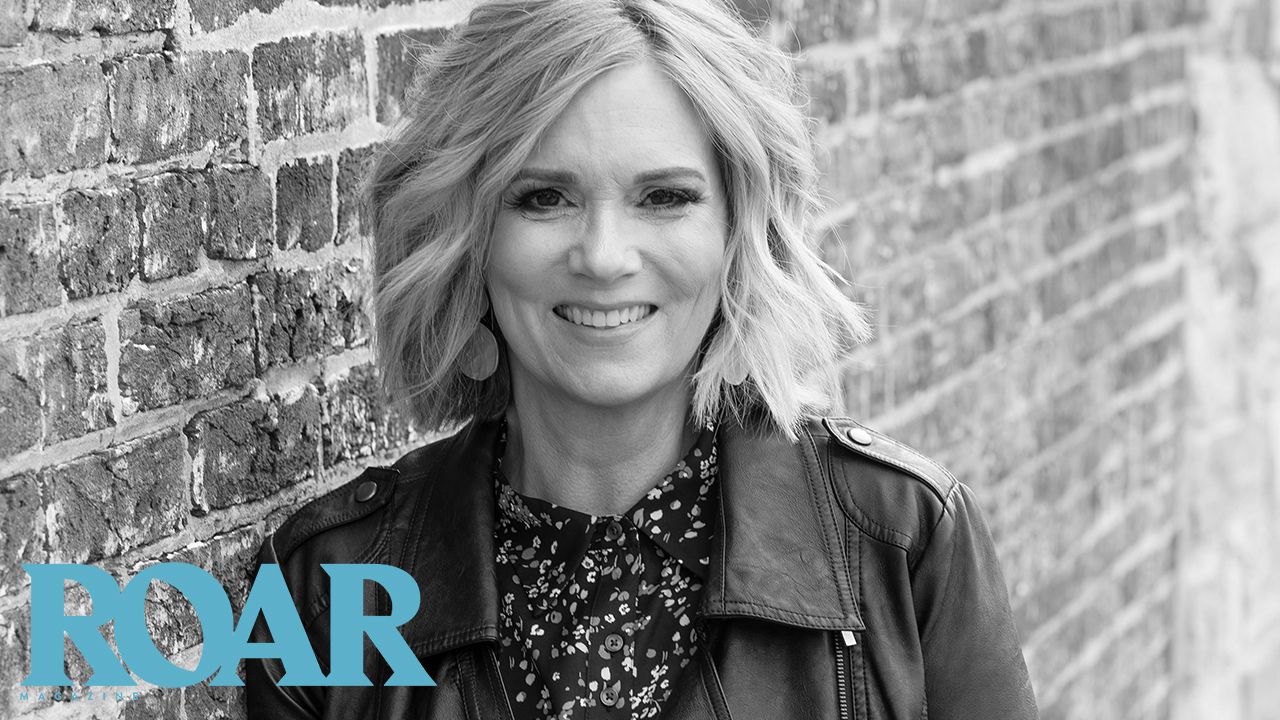Made to Flourish

by Lisa Potter
My definition of flourishing is to be the best version of yourself. God’s design is for us to flourish. This flourishing does not happen accidentally but begins with the realization that God calls us to fulfill our God-given design. No one is like you. Your personality, story, femininity, unique gifts and talents create your purpose. That is why we are women who lead—we flourish in our sphere of influence.
Several years ago, I attended a prayer retreat for women leaders. At the end of the opening session, the director encouraged us to find a place for contemplative prayer and listening. I’m a floor sitter—I feel closer to God when I am closer to the ground. So, I sat on the floor for a long time while simply listening, tuning my heart and ears to hear what the Spirit impressed on me at that moment.
It appeared like a long time passed when I felt impressed to pick up my Bible, journal and pen. I could tell that the Spirit wanted to share a message.
As I listened, I turned to Psalm 68:11 (NIV), a new scripture for me: “The Lord announces the word, and the women who proclaim it are a mighty throng.” I thought: Where has this scripture been all my life? Yet, what happened next remains significant to my purpose and calling. In my prayerful listening I heard, “God is preparing a mighty army of women who are full of the Spirit: warriors, prophetic voices, worshippers, trumpeters, grace-givers, bridge-builders, joy-givers, restorers of hope, dreamers, apostles and entrepreneurs (women who will birth new things).”
As I reviewed the list of what this mighty army of women would look like, I prayed about what it meant for me. Then, as I began to speak publicly at various places, I would share the prayer retreat story and pray over the women. God continues to raise the mighty army of women full of the Spirit. God draws us to open our hearts, eyes and ears to the talented and gifted women around us—in families, churches and communities.
Why am I telling you this story? You are a part of that mighty army as well. God has created you as an individual to do something I could never do, to go somewhere I cannot go. He has equipped and empowered your purpose and design; thus, “your deepest longing should be to be alive with God, to become the person God made you to be, and to be used to help God’s world flourish.”[1]
This type of flourishing does not happen without asking God for your mountain. When we ask for the Spirit of God to use us, we invite risk, pain and the unfamiliar to change us. Growth happens when he nudges us to move away from the comfortable places, step out into the unknown, or begin the ascent up the mountain.
When Moses sent the twelve spies out to survey the land, Joshua and Caleb were the only two who came back full of faith, saying, “We can do this!” The other 10 were ready to return to Egypt and become slaves again. After the venture to spy on the land, Caleb lived a long and full life. He climbed many mountains in his old age, and “as his generation all died out, he had to develop a whole new circle of friends as an older man. He became mentor, guide and cheerleader for an entirely new generation, and he did it to such an extent that they all said they wanted 85-year-old Caleb to lead them when they went to the hill country.”[2]
While you venture into a new place, a start, a fresh beginning, God waits for you at your mountain; however, “your mountain will not look exactly like anyone else’s. But often you will recognize it because it lies at the intersection of the tasks that tap into your greatest strengths and the needs that tap into your deepest passions.”[3] We go to our mountains together—not alone—with a community of sisters cheering for one another.
You may need tools and equipment to climb the mountain of influence and leadership, and your road up the mountain may be full of insecurity and places where you are unsure and afraid. But God asks for simple obedience, faith and letting go of fear.
Every woman is called to influence. Many women are also uncomfortable with the word leadership. I have found that you cannot separate the two—leadership and influence are interchangeable. If you are influencing, then you are leading. Stop for a moment, look around and see the areas you already influence. Train your mind to stop looking at influence within the four walls of a church. Influence is so much more. Influence and leadership show up with a meal when someone is sick. It is that simplistic. The foundation of influence is fulfilling your unique passion and calling. You lead and influence when you do what God designed you to do.
The scripture in Isaiah 61 is one of my favorites. Jesus also shares this scripture when he is standing in the temple. “The Spirit of God, the Master, is on me because God anointed me. He sent me to preach good news to the poor, heal the heartbroken, announce freedom to all captives, pardon all prisoners. God sent me to announce the year of his grace.” (Isaiah 61:1-2, MSG).
As soon as the word “preach” is mentioned, many disengage with the verse. “This is not for me. I am not called to preach.” But we preach with our life. We preach when we tell our story. We preach when we walk with the ordinary and help them see that God wants them to be extraordinary.
Recently, my husband, Frank, and I sold our house in the suburbs and moved to a farm. I love farm living! Every morning I wake up to the beauty of God’s creation and every evening I see a magnificent sunset—I call it the grand finale.
There are specific rules to farm living. As author Stephen Covey says, “Could we ever ‘cram’ on the farm—forget to plant in the spring, play all summer and then race in the fall to bring in the harvest? No, because the farm is a natural system. You must pay the price and follow the process. You reap what you sow, there is no short cut.”[4]
The natural system of influence is like farm living—planting, cultivating and flourishing. And you cannot have one without the other. Your influence requires you to produce. Your influence involves cultivation. When these two things are the overflow of your life, then you and the people in your sphere of influence flourish.
The revelation of what God showed me that day when I discovered Psalm 68:11 was significant. The phrase “the word” in verse 11 is the same meaning in Psalm 19:4 (NIV), “Yet their voice goes out into all the earth, their words to the ends of the world.” The importance of the “words” in each scripture is “divine utterance”—“The Lord announces the divine utterances, and the women who proclaim it are a mighty throng” (emphasis mine). In other words, the women proclaim what they hear from God. The Lord’s voice goes out to the ends of the earth by the women declaring it.
In the Old Testament, during declarations of victory, women were responsible for celebrating a triumph. Women expressed these victorious declarations through songs and dance. An example of this appears in Exodus 15:20-21(NIV) when Miriam begins to sing:
When Pharaoh’s horses, chariots and horsemen went into the sea, the Lord brought the waters of the sea back over them, but the Israelites walked through the sea on dry ground. Then Miriam the prophet, Aaron’s sister, took the timbrel in her hand and all the women followed her, with timbrels and dancing. Miriam sang to them, “Sing to the Lord for he is highly exalted. Both the horse and driver he has hurled into the sea.”
Likewise, Judges 5 features the Song of Deborah. In verse 7, Deborah sings, “Villagers in Israel would not fight; they held back, until I, Deborah, arose, until I arose, a mother in Israel” (Judges 5:7, NIV). Both passages illustrate the teaching of successive generations.
Miriam started singing, and the women and their daughters followed her. As leaders, they stepped up to teach both their community and the generations. Further, Deborah’s obedience gave her the title of Mother of Israel. Mother is a generational term. Not to sound silly, but a mother has a mother, and she has a child.
Generations continue through motherhood, growing our places of influence and the generational connection. Deborah acted as a mother to Israel. Appointed as the judge of Israel, she allowed her femaleness to shine through her leadership. When the battle was won, Deborah made a song declaration. She acted as ezer, a warrior, the help that Israel needed. Tribes speak of the passing of traditions from one generation to another.
The precedent of women celebrating the victory means they did not simply celebrate one victory but successive victories. Such declarations did not come from one large body of women celebrating one specific victory but from multiple women over many generations. They celebrated each consecutive win rapidly, one after another and another.
When we influence in the way God designed for us to lead, a successive multi-generational community develops, and we acquire the sense that we belong to something bigger—more significant than us, with the older teaching, the younger and the younger teaching, the older. Such collaboration remains uniquely feminine: “I hate stereotypes, but as I have watched female and male leaders, it seems to be the instinctive preference of women to bring everybody along.”[5] When women influence, the community flourishes, and the area we influence brings generational change. That is leading, my friend.
You were not made to imitate someone else, but to walk in the place where God designed you to flourish. Unfortunately, when our calling and leadership strive to reproduce someone else’s pattern for triumph instead of looking deeper within to develop our strengths, weaknesses and unique qualities, we dress in oversized clothes and boots in a futile attempt to make a one-size-fits-all approach work for our leadership contexts.
As female leaders, the litmus test for calling occurs in understanding the power of femininity. How you flourish is your calling—the power of God’s design in you. This unique calling to influence and lead cannot negate the reality that you are a woman. You are designed to flourish.
[1] John Ortberg, The Me I Want to Be: Becoming God’s Best Version of You (Grand Rapids, MI: Zondervan, 2010), 254.
[2] Ortberg, The Me I Want to Be, 250.
[3] Ortberg, The Me I Want to Be, 252.
[4] Stephen Covey, “The Law of the Farm,” Unprevention, accessed June 14, 2020, https://upprevention.org/the/34154-the-law-of-the-farm-by-stephen-covey-714-141.php.
[5] Joanna Barsh and Susie Cranston, How Remarkable Women Lead: The Breakthrough Model for Work and Life (New York: Crown Business, 2009), 182.

